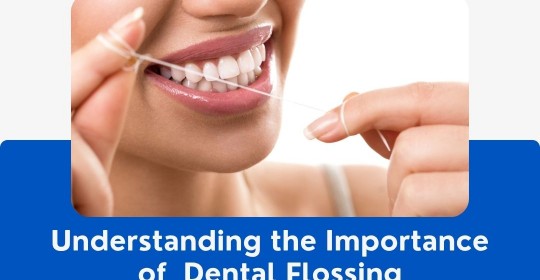
Understanding the Importance of Dental Flossing.
Dental flossing, or interdental cleaning, is a vital part of a complete oral hygiene routine. Its main benefits come from reaching the areas your toothbrush cannot—between the teeth and slightly under the gumline.
Here are the key benefits of daily flossing:
- Prevention of Gum Disease
- Removes Plaque: Flossing physically removes the sticky film of bacteria called plaque from the sides of your teeth and below the gumline. If left in place, this plaque hardens into tartar (calculus), which can only be removed by a dental professional.
- Stops Gingivitis: Plaque buildup is the primary cause of gingivitis, the early, reversible stage of gum disease characterized by red, swollen gums that may bleed easily. Flossing helps to prevent this inflammation.
- Prevents Periodontitis: If gingivitis is not treated, it can progress to periodontitis, a more severe infection that destroys the bone and tissues supporting your teeth, eventually leading to tooth loss.
- Prevention of Cavities and Tooth Decay
- Cleans Hidden Surfaces: Flossing cleans the 35% of your tooth surfaces that a toothbrush cannot reach. These areas are prime spots for food particles and plaque to collect and produce acid, which wears down tooth enamel and causes cavities.
- Fights Bad Breath (Halitosis)
- Removes Decaying Food: Trapped food particles and bacteria between your teeth begin to decay, producing foul-smelling gases. Flossing removes these culprits, helping to keep your breath fresh.
- Contributes to Overall Health
The connection between oral health and general health is significant. By controlling bacteria and inflammation in your mouth, you may reduce risks related to systemic conditions:
- Heart Disease: The inflammation and bacteria from severe gum disease (periodontitis) have been linked to an increased risk of cardiovascular issues, including heart attack and stroke.
- Diabetes Management: Gum disease can make blood sugar control more difficult for people with diabetes, and vice versa. Maintaining good oral hygiene, including flossing, supports better overall health management.
- Other Benefits
- Brighter Smile: By removing surface plaque and preventing tartar buildup in tight spaces, flossing contributes to teeth that look cleaner and brighter.
- Early Detection: Flossing helps you become more familiar with your mouth, allowing you to notice early signs of swelling, redness, or other potential issues that you can bring to your dentist’s attention.
Dental Considerations;
The American Dental Association (ADA) recommends cleaning between your teeth at least once a day using string floss or another interdental cleaner. There are distinct interdental cleaning tools, often recommended for specific needs: Your dentist or dental hygienist is the best person to suggest the specific type of flossing tool that suits the size of the gaps between your teeth and any dental work you may have.
Leave a reply →
inDLUxwLSBhkATMeozOioiuX
Reply →inDLUxwLSBhkATMeozOioiuX
Reply →